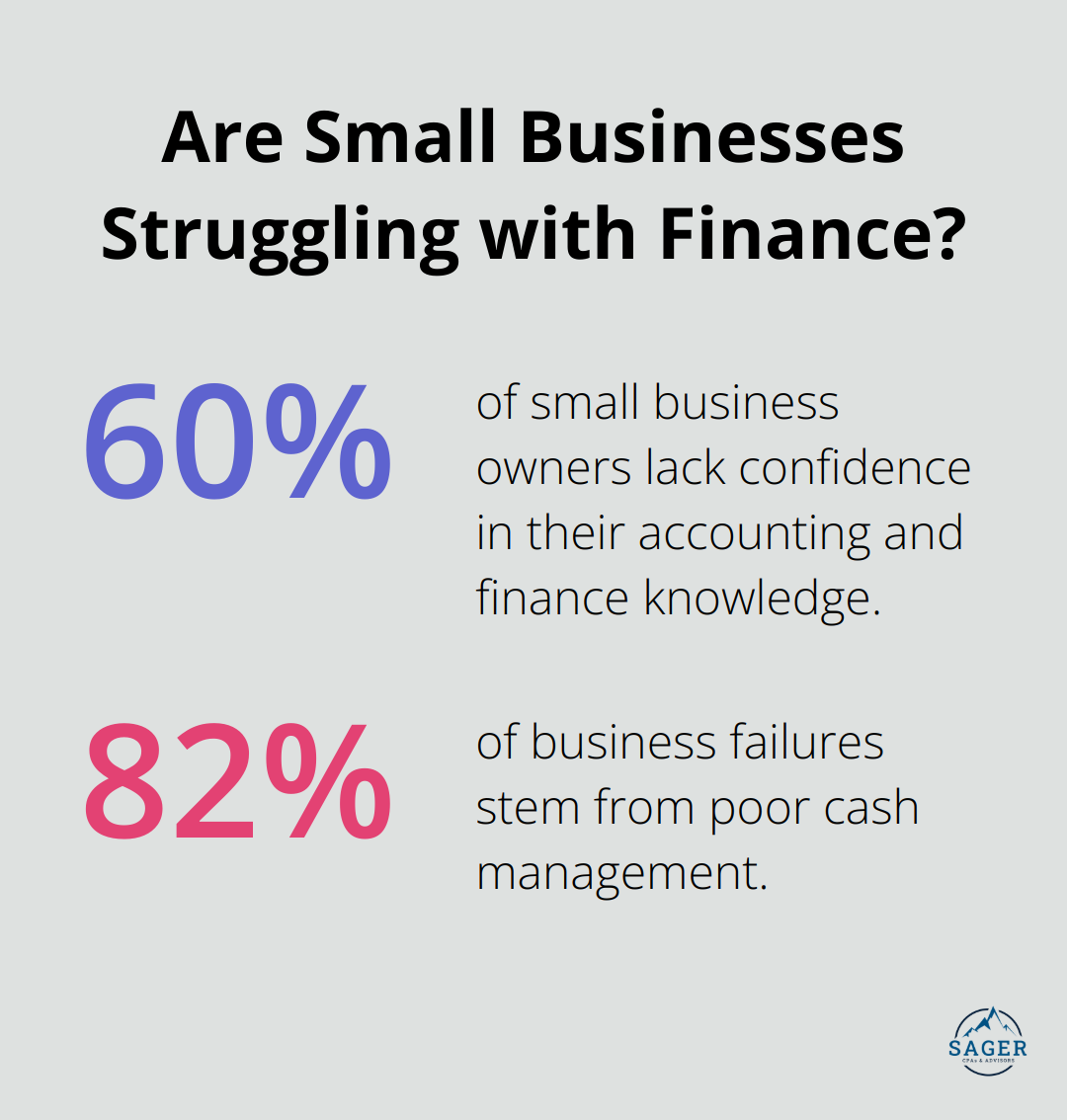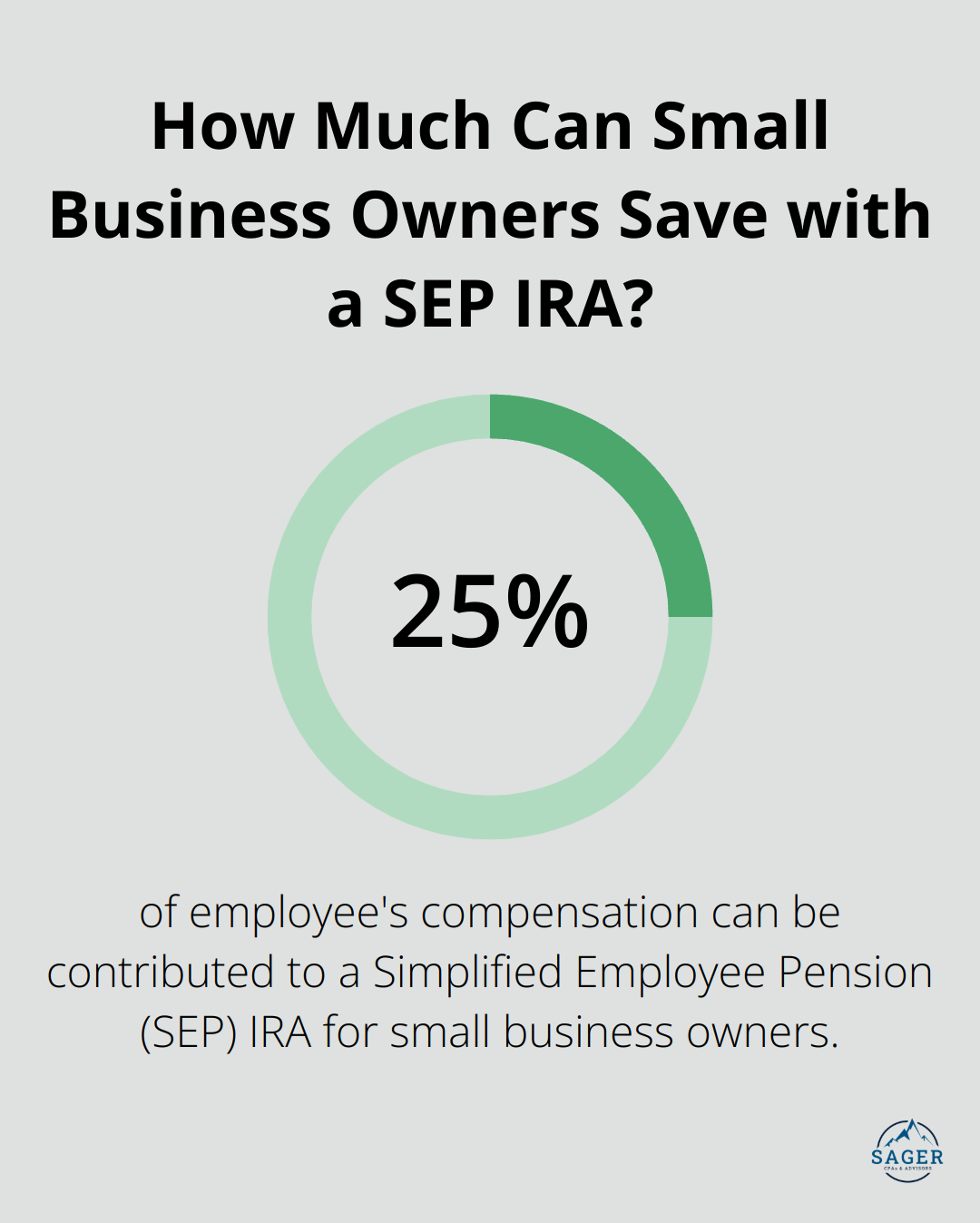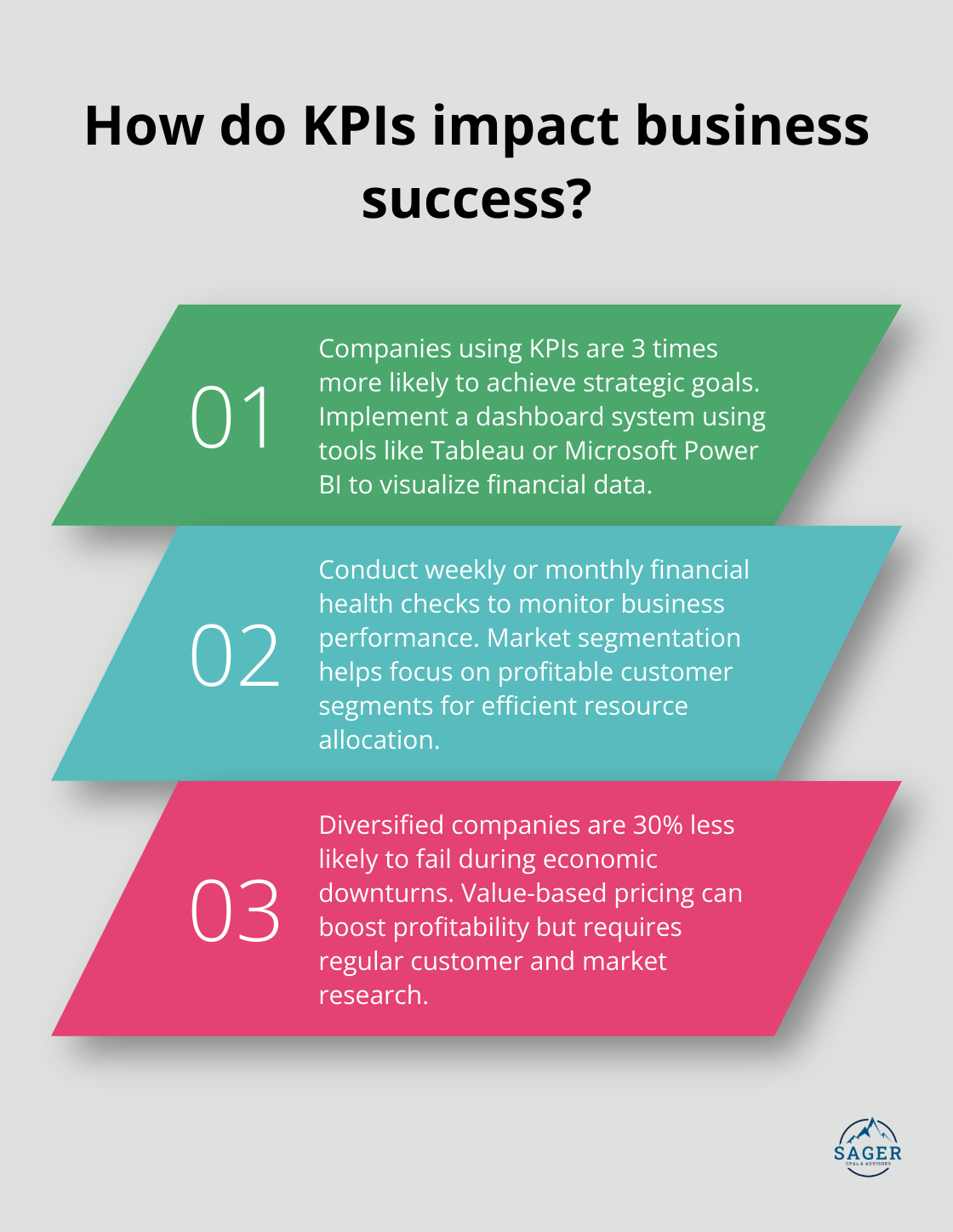
Small businesses face numerous financial challenges, and navigating them can be overwhelming. At Sager CPA, we understand the unique needs of small business owners.
What does a CPA do for a small business? From managing finances to providing strategic advice, a Certified Public Accountant (CPA) can be a game-changer for your company’s growth and success.
Small business owners often struggle with maintaining precise financial records, but this task forms the bedrock of sound financial decisions. A study by Wasp Barcode Technologies reveals that 60% of small business owners lack confidence in their accounting and finance knowledge. This gap can result in costly mistakes and missed opportunities.

To address this challenge, we recommend the implementation of a cloud-based accounting system that integrates with bank accounts and point-of-sale systems. This automation reduces errors and saves time. Popular choices among small businesses include QuickBooks Online and Xero, which offer real-time financial insights at your fingertips.
Financial statements serve as your business’s report card, telling the story of your company’s financial health and performance. These documents provide a clear picture of your business’s financial position, allowing for informed decision-making and strategic planning.
A U.S. Bank study found that 82% of business failures stem from poor cash management. To avoid this pitfall, create a cash flow forecast. Project your income and expenses for the next 12 months, breaking this down into weekly or monthly intervals for more granular control. Tools like Float or Pulse can automate this process, providing a clear picture of cash inflows and outflows.
A well-crafted budget serves as your roadmap to financial success, helping you allocate resources effectively and plan for future growth. The Small Business Administration advises revisiting your budget monthly to stay on track.
Consider adopting the zero-based budgeting method, where you justify every expense for each new period. This approach can lead to significant cost savings (10 to 25%, according to McKinsey & Company).
With accurate financial statements, cash flow projections, and a solid budget in place, you equip yourself to make data-driven decisions. Use key performance indicators (KPIs) such as gross profit margin, inventory turnover, and customer acquisition cost to gauge your business’s performance.
Conduct quarterly deep dives into your financials to identify trends, challenges, and opportunities. This proactive approach allows you to adjust your strategies before small issues escalate into major problems.
While financial management might appear daunting, it holds the key to unlocking your business’s full potential. The right tools and expert guidance can transform financial data into a powerful asset for growth and success. As we move forward, let’s explore how strategic tax planning can further enhance your business’s financial health and minimize liabilities.
Tax planning and compliance form the cornerstone of financial success for small businesses. A well-executed tax strategy can reduce your tax burden, improve cash flow, and support your business growth objectives.

We recommend quarterly tax planning sessions instead of last-minute scrambling. These regular check-ins allow you to adjust your strategy based on your business’s current performance and changing tax laws.
One effective approach involves leveraging tax-advantaged retirement plans. For instance, a Simplified Employee Pension (SEP) IRA allows small business owners to contribute up to 25% of the employee’s compensation, or $69,000 for 2024 ($66,000 for 2023), whichever is less. This strategy not only reduces your taxable income but also secures your financial future.
Another tactic focuses on timing your income and expenses. If you expect to be in a lower tax bracket next year, consider deferring income to the following year. Conversely, if you anticipate being in a higher bracket, accelerate income into the current year. Apply the same principle to expenses – time them to maximize their tax benefit.
Accurate and timely tax filing is essential for small businesses. To avoid penalties, maintain meticulous records throughout the year.
Implement a robust system for tracking all business expenses. Apps like Expensify or Receipt Bank (popular choices among small business owners) can simplify this process by allowing you to capture and categorize receipts on the go. Don’t overlook small deductions – items like office supplies, professional development costs, or mileage for business travel all add up.
The prospect of an IRS audit can intimidate many business owners, but proper preparation can streamline the process.
If you face an audit, organize all relevant documents, including income statements, balance sheets, bank statements, and receipts. Consider using a digital document management system to keep everything easily accessible.
Expert representation throughout the audit process ensures that your rights are protected. A deep understanding of tax law and IRS procedures allows for efficient navigation of audits, minimizing stress and potential negative outcomes for clients.
Tax planning requires an ongoing commitment. Staying proactive, maintaining accurate records, and seeking expert guidance transforms tax planning from a dreaded chore into a powerful tool for business growth and financial stability. As we move forward, let’s explore how strategic business advisory services can further enhance your company’s performance and drive sustainable growth.
Financial metrics serve as powerful tools for measuring business performance. Key Performance Indicators (KPIs) provide insights into the day-to-day operations and are instrumental in helping businesses track their progress, make data-driven decisions. A study by PwC found that companies using KPIs are 3 times more likely to achieve their strategic goals.

To harness the power of these metrics, we recommend the implementation of a dashboard system. Tools like Tableau or Microsoft Power BI can visualize your financial data, making it easier to spot trends and make informed decisions. Set up weekly or monthly financial health checks to stay on top of your business’s performance.
Business growth requires careful planning and execution. One effective strategy is market segmentation. Identify and focus on your most profitable customer segments to allocate resources more efficiently and increase your return on investment.
Diversification also acts as a powerful growth lever. A Harvard Business Review study found that companies with diverse revenue streams are 30% less likely to fail during economic downturns. Consider the expansion of your product line or entry into new markets to spread risk and capture new opportunities.
Pricing strategy plays a crucial role in growth. We often observe small businesses underpricing their products or services. The implementation of value-based pricing, where prices are set based on the perceived value to the customer (rather than just costs), can significantly boost profitability. Successfully implementing value-based pricing requires investing in regular customer and market research, analysis, messaging and marketing.
Risk management is often overlooked by small businesses, but it’s essential for long-term success. Start with a comprehensive risk assessment. Identify potential threats to your business, from market changes to operational risks, and develop mitigation strategies for each.
Internal controls act as your first line of defense against fraud and errors. Implement segregation of duties, where no single employee has control over all aspects of financial transactions. Regular audits, both internal and external, can help identify weaknesses in your systems before they become problems.
Cybersecurity is another critical area of risk management. With cyberattacks on small businesses increasing by 424% in 2020 (according to RiskIQ), investment in robust cybersecurity measures is no longer optional. Try to implement multi-factor authentication, regular employee training, and encrypted data storage to protect your business’s sensitive information.
Financial forecasting serves as a powerful tool for managing risk. Project different scenarios – best case, worst case, and most likely – to prepare contingency plans and ensure your business remains resilient in the face of uncertainty.
A CPA provides invaluable services for small businesses beyond basic tax preparation. CPAs act as financial stewards, tax strategists, and trusted advisors, helping companies navigate complex financial landscapes and make informed decisions. Their expertise helps businesses avoid costly mistakes, identify improvement opportunities, and position themselves for long-term success.

At Sager CPA, we understand the unique challenges small businesses face. Our experienced professionals offer tailored financial solutions that align with specific needs and goals. We provide comprehensive services including precise accounting, strategic advisory, and proactive tax planning to reduce liabilities and enhance financial clarity.
Take the next step towards financial success. Schedule a consultation with Sager CPA to create a personalized financial strategy for your business. Our supportive partnership approach ensures you’ll have the guidance and tools necessary to make informed decisions and drive your business forward.




Privacy Policy | Terms and Conditions | Powered by Cajabra
At Sager CPAs & Advisors, we understand that you want a partner and an advocate who will provide you with proactive solutions and ideas.
The problem is you may feel uncertain, overwhelmed, or disorganized about the future of your business or wealth accumulation.
We believe that even the most successful business owners can benefit from professional financial advice and guidance, and everyone deserves to understand their financial situation.
Understanding finances and running a successful business takes time, education, and sometimes the help of professionals. It’s okay not to know everything from the start.
This is why we are passionate about taking time with our clients year round to listen, work through solutions, and provide proactive guidance so that you feel heard, valued, and understood by a team of experts who are invested in your success.
Here’s how we do it:
Schedule a consultation today. And, in the meantime, download our free guide, “5 Conversations You Should Be Having With Your CPA” to understand how tax planning and business strategy both save and make you money.